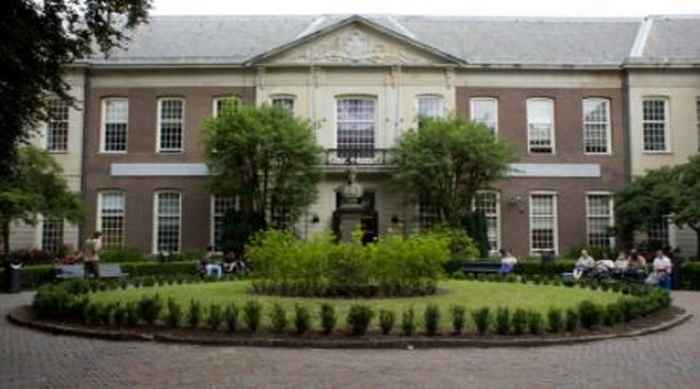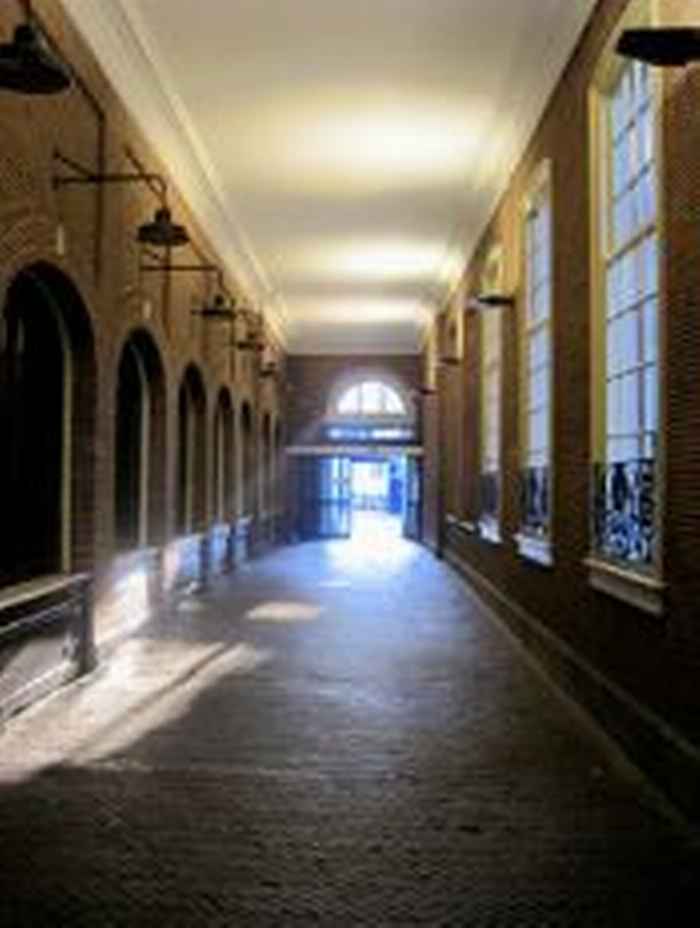Conference - API100
June 8, 9, and 10, 2022 in Amsterdam

Location
The conference is held at the UvA location Oudemanhuispoort (room D1.08), which is in the center of Amsterdam https://goo.gl/maps/for9nheR4QEthWW98
Registration
If you are a current API or API alumni (master, PhD, PD, staff members, support staff) and you would like to attend, please register here: https://api-uva.paydro.com/api-100-alumni-event
If you have any questions, please feel free to contact us at api-alumni@uva.nl!

Scope of the conference:
The aim of the conference is to highlight API research then, now and in the future. The conference will cover the five key research topics of the API:
i) exoplanets and planet formation
ii) stellar evolution and populations
iii) dense matter
iv) accretion inflows and outflows
v) high-energy transients, explosions and particles
In addition, we will touch upon the rich history of the API.
Conference program:
The conference program consists of half-day plenary sessions with both invited and solicited review talks on the different API research topics. Since we have dearly missed in-person collaborations in the past two years, we have also planned half-day splinter sessions to facilitate in-depth discussions and collaborations on different sub-topics.
The first day of the conference covers topics within API’s Origins theme, the second day is devoted to the High-Energy Astrophysics (HEA) theme. The third and closing day of the conference gives an overview of the history of API as well as highlights of current and future API teaching and research efforts. The conference closes with celebratory drinks in honor of API’s 100 year anniversary.
Day 1 = Wednesday June 8
Theme Origins
09:00-12:30 Plenary session highlighting API research within the Origins theme
Chair: Nathalie Degenaar
08:30 - 09:15 Registration, coffee
09:15 - 09:30 Conference opening
Welcome address by API director Carsten Dominik
09:30 - 10:00 Jean-Michel Desert, API research on exoplanets
10:00 - 10:30 Michiel Hogerheijde, Dissecting planet-forming disks with ALMA and VLTI
10:30 - 11:00 Coffee break
11:00 - 11:30 Maria Ramirez-Tannus, The early lives of massive stars
11:30 - 12:00 Sam Geen, How stars shape the universe
12:00 - 12:30 Silvia Toonen, API research on the evolution of multiple-star systems
12:30-14:30 Lunch break in one of the many venues around the conference location
14:30-17:30 Afternoon free-format session(s)
Free time for discussions or time to work in small or large groups, rooms are available:
https://docs.google.com/document/d/1pAoGHr01txTCg4UEXbw-WYpRItZP0_Dwbfnk5fsI2oo/edit?usp=sharing
Day 2 = Thursday June 9
Theme High-Energy Astrophysics (HEA)
Chair: Ralph Wijers
09:00-12:30 Plenary session highlighting API research within the High-Energy theme
09:00 - 09:30 Anna Watts, NICER and dense matter (Rossi prize talk)
09:30 - 10:00 Oliver Porth, Numerical modeling of accretion processes around compact objects
10:00 - 10:30 Phillip Mösta, Numerical modeling of core-collapse supernovae and mergers
10:30 - 11:00 Coffee break
11:00 - 11:30 Alexander van der Horst, A quarter century (aka API lifetime) of Gamma-Ray Burst afterglows
11:30 - 12:00 Daniela Hupperkoten, Data Science
12:00 - 12:30 Jason Hessels, Fast Radio Bursts
12:30 - 14:30 Lunch break in one of the many venues around the conference location
14:30 - 17:30 Afternoon splinter session on Accretion and Jets
14:30 - 15:30 Short talks
14:30 - 14:50 Manu Linares, Compact binary millisecond pulsars: super-massive neutron stars and underluminous accretion flows
14:50 - 15:10 Alexander Mushtakov, Neutron stars in ultraluminous X-ray sources
15:10 - 15:30 Sjoerd van Velzen, The Burgeoning Role of Tidal Disruption Events as Tools for Black Hole Astrophysics
15:30 - 16:00 Coffee break
16:00 - 17:30 Free-format session(s)
Everyone can bring up topics, questions, show a few slides, work in small or large groups:
https://docs.google.com/document/d/1pAoGHr01txTCg4UEXbw-WYpRItZP0_Dwbfnk5fsI2oo/edit?usp=sharing
Day 3 = Friday June 10
The Anton Pannekoek Institute then, now and in the future
Chair: Antonia Rowlinson
09:30 - 12:30 Morning splinter session on Transients and Gravitational Waves
09:30 - 10:30 Short talks
09:30 - 09:50 Sill Verberne (TBC), Discovering hypervelocity stars: going from one to many
09:50 - 10:10 Alicia Rouco Escorial, New developments in GRB research
10:10 - 10:30 Gijs Nelemans, Gravitational waves as tool for astrophysics: from the API work in the 1970s to the future with LISA and the ET
10:30 - 11:00 Coffee break
11:00 - 12:30 Free-format session(s)
Everyone can bring up topics, questions, show a few slides, work in small or large groups:
https://docs.google.com/document/d/1pAoGHr01txTCg4UEXbw-WYpRItZP0_Dwbfnk5fsI2oo/edit?usp=sharing
12:30-14:30 Lunch break in one of the many venues around the conference location
14:30-17:30 Afternoon plenary session
14:30 - 15:00 Ralph Wijers, History of Anton Pannekoek & Institute
15:00 - 15:30 Huib Henrichs & Rudy Wijnands, the Anton Pannekoek Observatory
15:30 - 16:00 Coffee break
16:00 - 16:30 Carsten Dominik, Overview and highlights of Origins research at API
16:30 - 17:00 Nathalie Degenaar, Overview and highlights of HEA research at API
17:00 Formal closing of conference by Ralph Wijers
17:00 - 18:30 Conference closing drinks